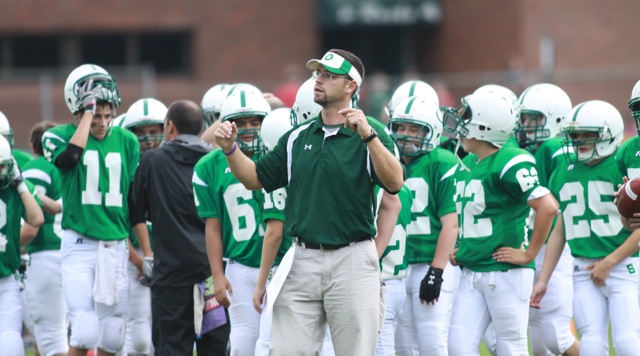Handling frustration in the athletic director position
As an athletic administrator, one of the first things you’re going to realize is that life can be frustrating. But you don’t have to suffer those occasions as long as you understand the dynamics behind them. That being said, you need to develop an approach for dealing with the frustrations.

Frustration often stems from several factors. You might have to deal with:
- Difficult, challenging individuals in the form of coaches, parents or supervisors.
- Impossible time constraints, including short due dates.
- Situations in which you have no input and have to deal with restrictive policies and procedures.
- Long, exhausting days and weeks with little time to relax and regenerate.
While this is not an all-inclusive list, you get the idea. Whenever you have little or no control or hope, frustration may develop.
This is not to say that athletic directors are the only professionals who face frustration in their positions, but as the most visible aspect of education, we are under scrutiny in everything we do.
Since frustration will hit all of us at some point, how do we handle it?
Tips to handle frustration
1. Try to figure out the source of your frustration and determine if there are any alternatives you might use to alleviate it. It’s possible that there is an easier way.
2. Develop due dates a day or two earlier than actually needed for information supplied by your coaches. For example, eligibility or tourney entry forms. This will provide you with a buffer before your actual deadline has to be met. That way, if there’s a hiccup in the system or an unexpected obstacle surfaces, you have time to deal with it.
3. Avoid the source of your frustration if you can. Obviously, you have to meet deadlines for transportation, field lining schedules and other responsibilities. But it might be possible to limit your interaction with difficult individuals, greatly helping you to decrease your frustration level. For example, when it comes to parents, ask them to respect the chain of command — bring issues to the coaches first.
4. Offer suggestions whenever possible for more effective working relationships with coaches, booster clubs and faculty members. This is not to suggest that you shouldn’t also try to take this approach with your supervisors, but realistically this tactic may not ultimately be accepted.
5. Control what you can in your schedule. The lack of this element is often a prime source of frustration. If a problem arises, try to determine what parts you can handle and those requiring help. If a due date is involved, for example, perhaps you can get an extension after explaining the problem.
» MORE: Help for the overwhelmed athletic director
6. Take a walk to decompress after unsettling confrontations with a challenging individual. Always resist the urge to quickly respond to such aggravating encounters. It’s always better to regain your composure, regain your ability to think through the situation, and come up with an appropriate solution or approach.
7. Realize that most other athletic administrators experience the same or similar frustrations. While you may still have to contend with a problem, you are not alone. In our small fraternity of athletic directors, a possible solution is a simple inquiry to a colleague.
8. Don’t allow frustration, regardless of the source, to creep into or carry over to your next interaction with other individuals. This goes back to a basic principle of teaching. Whenever the next class enters, the previous one becomes history and the students now require your full attention and effort.
9. Try to model the attributes that you expect in others and avoid behaviors or actions that cause you frustration. Always be positive, on time, encouraging, honest, supportive and professional. Being a role model for your coaches, parents and athletes should also include effective methods for handling frustration.
10. Remind yourself regularly of the real meaning of frustration. It will show that you care about your responsibilities, role and the individuals in your program. You can’t accomplish much of value without this trait.
The key to effectively dealing with frustration is to limit its extent so that it doesn’t become debilitating. Though frustration affects us at times, we have to recover quickly and move on to our next task with our normal enthusiasm, energy and commitment. It’s what our staff, coaches and student-athletes deserve.
David Hoch, CMAA, has 16 years of experience as a high school athletic director and served for 12 years as the executive director of the Maryland State Coaches Association. In 2000, he was named Athletic Director of the Year by the Maryland State Athletic Directors Association. His column, A.D.ministration, focuses on issues in athletic administration and appears regularly in Coach & Athletic Director magazine.





